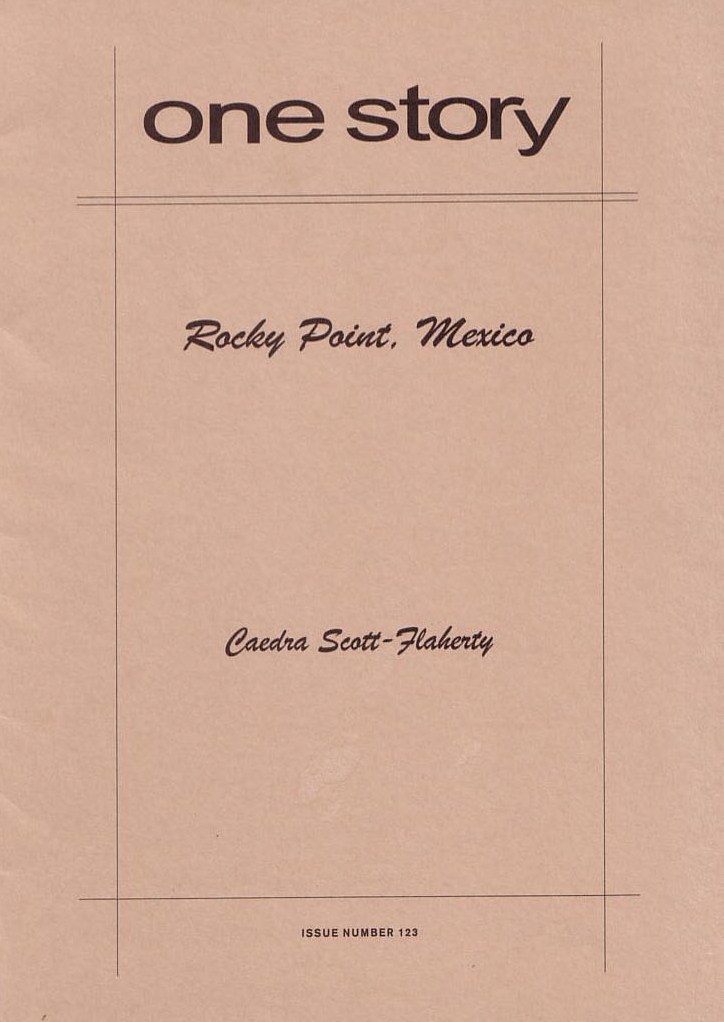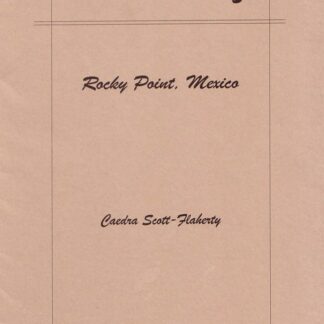
Rocky Point, Mexico
$2.50
55 in stock
Excerpt
“Tell me a story.”
“What?”
“A story,” he says.
I can’t breathe correctly. In his blue pick-up truck, my hands are damp, and my skin is translucent. Flesh and bones wrapped in rice paper.
“About what?”
“I don’t know,” he says, following the exit signs out of the airport parking lot.
“Isn’t that what you do?”
What I do, actually, is work as a waitress at The Organic Orchard. (Or server—the new and improved, unisex waitress.) I read and, sometimes, I write. Mostly emails to him, these days. But what you want the person you’re about to spend a romantic getaway with to be doing and what they actually do is so rarely the same thing.
“Come on.” He smiles quickly at me, one crooked canine nudging the surrounding teeth out of the way. He takes out a pack of American Spirits from his pocket, rolls down the window, and lights up. It’s funny the things you can’t know about a person through online dating. Even after months of so much writing, of trying to squeeze warm flesh from email subject lines, from a quirky lack of punctuation, and one small photo, the things you just can’t know.
Caedra Scott-Flaherty
Caedra Scott-Flaherty grew up in Rochester, New York. She graduated from Brown University and recently received her MFA from New York University. Her fiction has been published in Open City, where she was awarded the 2008 RRofihe Trophy Award for short fiction. She currently lives in Brooklyn.
Q&A by Hannah Tinti
- HT: Where did the idea for this story come from?
- CS: This story grew equally out of two ideas: the line of dialogue, “Tell me a story,” (which may or may not have been said to me, in a truck, by a yellow-capped man) and the setting. I, too, went on a road trip from Arizona to Mexico. It was such an intriguing place—surprisingly empty, constantly under construction and/or demolition. I knew I wanted to write about it, someday, although it took a year before the pieces of this story started to come together in my head. Also, when my mother was young, she lost her own mother to cancer. She was told of the diagnosis via telegram, while falsely imprisoned in a Mexican jail. So, somewhere far back in my mind-attic, Mexico and cancer and mothers and daughters are all packed in the same little box. When I began writing this story, I wasn’t thinking of that box, but stories have a way of unpacking things in you.
- HT: What was the most challenging aspect of writing this story?
- CS: The challenges I faced were the same ones the main character did, I now realize. I couldn’t quite figure out the male character. I didn’t know how she should properly grieve. I had no idea how they should say goodbye. This was the first story in which I knew not only the beginning but the ending (which I usually never know until I get there), but had no idea how to get from one point to the other.
- HT: The story has a very different and compelling structure—that of interrupting the real-time narrative to tell a “story” about the narrator’s mother. How did this structure come about, and what do you think it adds to the story as a whole?
- CS: The structure was a reaction to the line, “Tell me a story,” which was my original first line. When I started writing, there was no mother, there was no cancer, no ballet, no animal facts. There was just two strangers in a truck, the romanticizing of Mexico, and the pressure of that storytelling request (Be entertaining! Tell me something I don’t already know, something I’ll never forget!). I began thinking of the things we choose to say, and the things that we will never ever say. The public verses the private stories that make up who we are, and what we decide to show in controlled social situations. I hope it adds a sense of intimacy between the narrator and reader, while also creating more distance between the two main characters.
- HT: The setting in “Rocky Point, Mexico” really shapes the story. Being in Mexico seems to bring to a head all of the narrator’s romantic preconceptions and nostalgia for the mother she’s lost. What do you think it is about Mexico (as opposed to say, Colorado) that draws this out?
- CS: For the narrator, Mexico represents an idealism—of her parents relationship, of romantic love in general, and of her mother’s life. Mexico, as opposed to Colorado, represents “the unknown.” It is a place with different laws, and a different language and culture. It offers the possibility of being something other than what you really are, a chance to escape the comforts and stresses of “real” life.
- HT: You mentioned that you’ve written plays in the past, and the well-developed dialogue in the story reflects this. What are some of the different techniques and approaches you employ when writing fiction versus writing for the stage?
- CS: When writing for the stage, it is all about how a character says something. Word choice, sentence length, and speech patterns are attempts to externalize a character’s psychology. But in fiction, the reader has access to a character’s mind—how fantastic is that?—which means I can play more with what one thinks verses what one says, with the inability to ever really articulate what one means, the inevitable failures of language.
- HT: You end “Rocky Point, Mexico” with the narrator saying goodbye, which seems to be a central theme of the story. What do you think this goodbye signifies for the character, and how do you envision her future, off the page?
- CS: For the narrator, this is a triple goodbye: to this romantic impossibility, to the first hard year of grief, and, of course, to her mother. How do I envision her future off the page? I can’t answer that! I think she turns around, and walks into the airport. But, after that, that’s for her, and the reader, to decide.
- HT: Why did you choose to set these characters up using online dating?
- CS: For many of the same reasons this story is set in Mexico instead of Colorado—it is a trip into The Unknown. When meeting someone online, you can be whoever and whatever you want to be. The rules are different. You are taken out of context, and it is up to you what you choose to reveal, and what you hide.
- HT: How long did it take you to complete this story?
- CS: The first draft? One week. The following 11 drafts? Six months, and counting.
- HT: What are you working on now?
- CS: I’m completing a collection of short stories, of which “Rocky Point, Mexico” is one of seven (currently).
- HT: What is the best bit of advice about writing you have ever received?
- CS: “Keep the feeling, change the facts.” Thank you, Amy Hempel.
